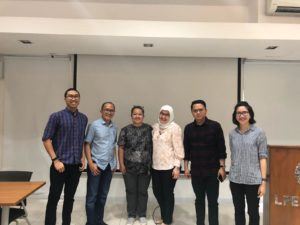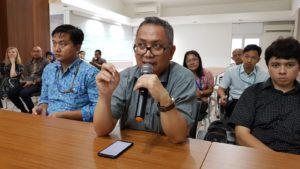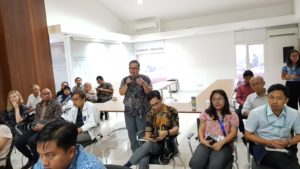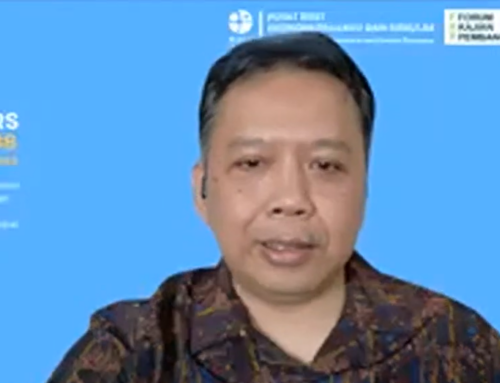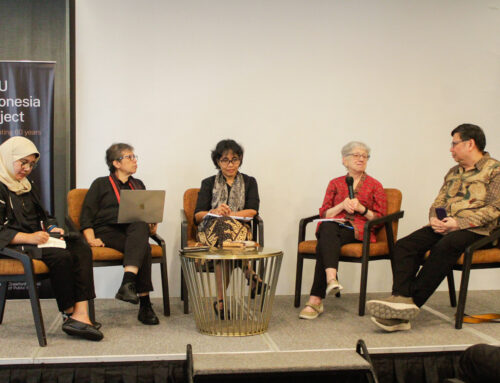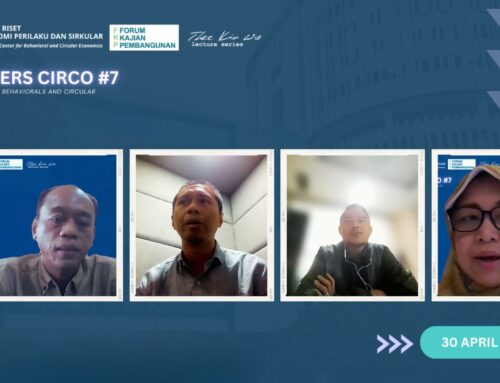Competition in the export markets is a key channel for firms to learn how to improve their productivity. Past studies have shown evidence of learning by exporting (LBE), but none has systematically explored competition as one of the channels. Understanding the extent to which export improve productivity by examining the competition channel would give an insight into policy-making. Deasy Pane (BAPPENAS) and Arianto Patunru (Indonesia Project, The Australian National University) undertook research to explore the competition channel in exporting. Their study was presented at FKP on Thursday, 9 January 2020 in Jakarta.
This study uses the case of Multi-Fibre Agreement (MFA) implemented in Indonesia from 1995 to 2005. By examining the production under and beyond the MFA implementation using data from Indonesia’s Statistik Industri, this study tries to prove the hypothesis that LBE under the MFA regime is smaller than that without the MFA regime. For the analysis, this study implements four key strategies: (1) a propensity score matching for the exporters and their non-exporters counterparts to avoid the self-selection bias, (2) difference-in-difference for pre-MFA and post-MFA abolition, (3) quasi-synthetic control to deal with the confounding factors using footwear industry as a comparison, and (4) timeframe adjustment for pre-1995 and post-2005.
Through this research, Arianto and Deasy found that a policy intervention such as the MFA may create a situation that opens up or closes down the channels of learning, which is competition in the case of the MFA. This study recognizes the positive effect of the increased competition on firms’ learning. Therefore, it’s important to keep a competitive environment to gain higher productivity as policy interventions such as the MFA might reduce the benefits of LBE.
For the complete presentation and Q&A session, please refer to the video and materials provided.
